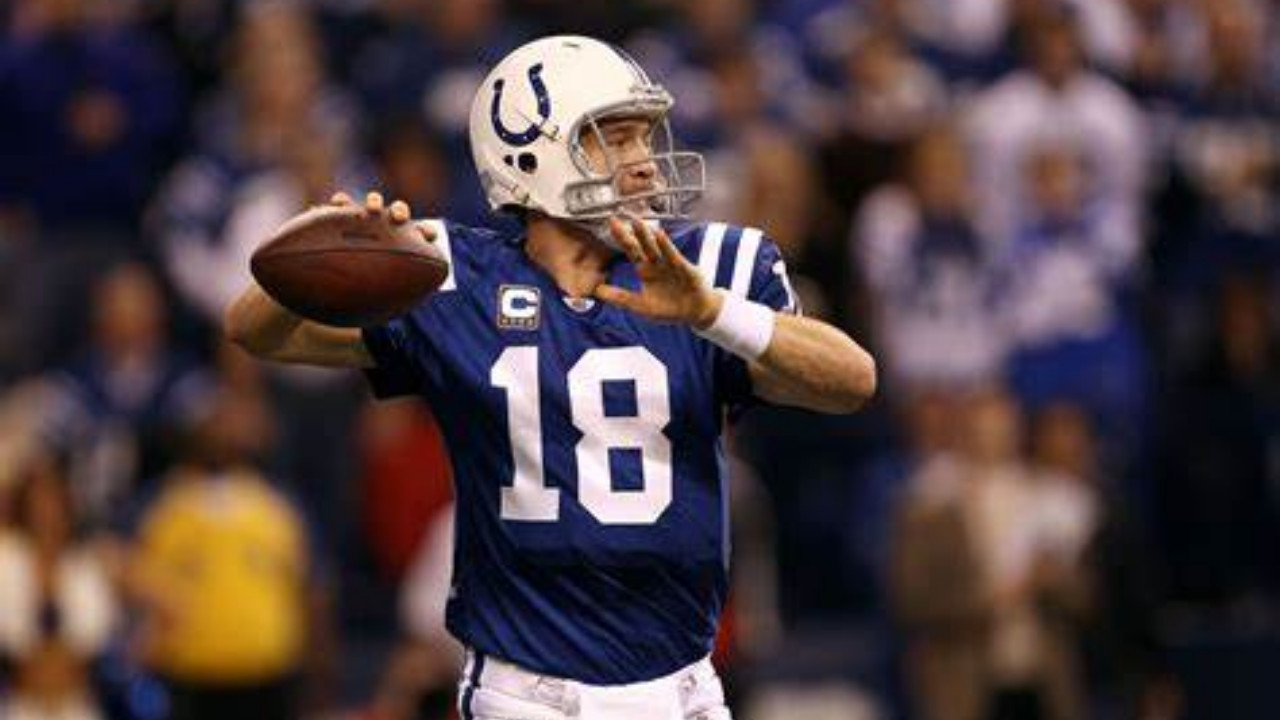Are you curious about the quarterback position in American football? This guide dives deep into what a quarterback does, their responsibilities, and the skills needed to excel. CAUHOI2025.UK.COM provides easy-to-understand explanations and valuable insights. Learn about the “signal caller” role, essential quarterback skills, and how they contribute to a team’s success.
Table of Contents
- 1. What Does a Quarterback Do?
- 2. The Job of the Quarterback Explained
- 3. Quarterback: Origin of the Name
- 4. Common Quarterback Nicknames
- 5. Ideal Body Type for a Quarterback
- 6. Essential Skills of a Great Quarterback
- 7. Key Quarterback Skills in Detail
- 8. Football IQ
- 9. Decision-Making Skills
- 10. Accuracy with the Football
- 11. Leadership Qualities
- 12. Footwork Importance
- 13. Athleticism Benefits
- 14. Arm Strength Necessity
- 15. Legendary Quarterbacks of All Time
- 16. The Importance of the Quarterback
- FAQ
1. What Does a Quarterback Do?
The quarterback (QB) is the offensive leader in football, responsible for executing plays and making crucial decisions. According to a study by the NFL Players Association, quarterbacks experience the most frequent decision-making scenarios during a game, underscoring their vital role in directing the team’s strategy and performance. Their primary tasks involve receiving the snap, reading the defense, and either handing off the ball, running with it, or passing to a receiver. Quarterbacks must possess a high level of football intelligence, leadership skills, and physical abilities to excel.
2. The Job of the Quarterback Explained
The quarterback’s job is multifaceted and demanding. They are responsible for:
- Calling plays: At the professional level, QBs often call plays or have significant input.
- Reading the defense: Identifying defensive formations and potential blitzes is crucial.
- Making quick decisions: Deciding whether to pass, run, or hand off in a split second.
- Throwing accurately: Placing the ball where the receiver can catch it in stride.
- Leading the team: Inspiring confidence and maintaining composure under pressure.
The QB acts as an extension of the coaching staff on the field, adapting to the game’s flow and making necessary adjustments. The effectiveness of a quarterback significantly impacts the team’s overall performance.
3. Quarterback: Origin of the Name
The name “quarterback” comes from the position’s original alignment. In early football formations, the QB stood one-quarter of the distance back from the line of scrimmage, behind the halfback and fullback. Even though formations have evolved dramatically, the name has stuck, reflecting the historical roots of the position.
4. Common Quarterback Nicknames
Quarterbacks have earned several nicknames that reflect their roles and skills:
- Signal Caller: Emphasizes their responsibility for communicating plays.
- Field General: Highlights their leadership on the field.
- Gunslinger: Refers to quarterbacks with strong arms and a willingness to take risks.
- QB: A simple abbreviation for the position.
These nicknames illustrate the quarterback’s significance in the game and the diverse skill sets associated with the position.
5. Ideal Body Type for a Quarterback
The ideal body type for a quarterback has evolved. Historically, tall, strong quarterbacks were favored. Today, athleticism and mobility are increasingly valued. While height remains an advantage for seeing over the offensive line, quarterbacks of various sizes have found success. According to a study by ESPN, smaller, mobile quarterbacks are becoming more common in college and professional football, reflecting the game’s changing dynamics.
6. Essential Skills of a Great Quarterback
Great quarterbacks possess a combination of physical and mental skills. These include:
- Football IQ: Understanding the game at a high level.
- Decision-Making: Making quick, smart choices under pressure.
- Accuracy: Throwing the ball where it needs to be.
- Leadership: Inspiring and motivating teammates.
- Footwork: Moving efficiently in the pocket.
- Athleticism: Ability to run and evade defenders.
- Arm Strength: Throwing the ball with power and distance.
7. Key Quarterback Skills in Detail
Each skill contributes uniquely to a quarterback’s success:
8. Football IQ
A high football IQ means understanding plays, reading defenses, and making adjustments at the line of scrimmage. This includes knowing the playbook inside and out, understanding defensive schemes, and recognizing opportunities to exploit weaknesses. Quarterbacks with high football IQs often excel at audibles and pre-snap adjustments.
9. Decision-Making Skills
Decision-making involves quickly assessing situations and choosing the best course of action. This includes determining whether to pass, run, or hand off, and identifying the best receiver to target. Excellent decision-making minimizes turnovers and maximizes scoring opportunities.
10. Accuracy with the Football
Accuracy is crucial for completing passes and avoiding turnovers. Accurate passes allow receivers to catch the ball in stride and gain extra yards. It also protects receivers from unnecessary hits and injuries. Quarterbacks known for their accuracy are highly valued.
11. Leadership Qualities
Leadership involves inspiring confidence, motivating teammates, and setting a positive example. Leaders hold teammates accountable and maintain composure under pressure. According to a survey by Sports Illustrated, leadership is one of the most valued qualities in a quarterback, influencing team morale and performance.
12. Footwork Importance
Footwork is essential for maintaining balance, avoiding pressure, and delivering accurate passes. Proper footwork allows quarterbacks to move efficiently in the pocket, create throwing lanes, and extend plays. Effective footwork is a hallmark of top quarterbacks.
13. Athleticism Benefits
Athleticism allows quarterbacks to evade defenders, extend plays, and gain yards on the ground. Mobile quarterbacks create additional challenges for defenses and add versatility to the offense. The rise of dual-threat quarterbacks has highlighted the importance of athleticism.
14. Arm Strength Necessity
Arm strength enables quarterbacks to make long throws and fit the ball into tight windows. While not the only important trait, arm strength allows quarterbacks to make plays that others cannot. Quarterbacks with strong arms are highly sought after.
 Peyton Manning Colts Quarterback
Peyton Manning Colts Quarterback
15. Legendary Quarterbacks of All Time
Several quarterbacks have left an indelible mark on the game:
- Otto Graham (1946-1955): A dominant force in the AAFC and early NFL.
- Peyton Manning (1998-2015): Known for his football IQ and leadership.
- Dan Marino (1983-2000): A prolific passer with numerous records.
- Joe Montana (1979-1994): Led the 49ers to multiple Super Bowl victories.
- Tom Brady (2000-2023): The all-time leader in Super Bowl wins.
These quarterbacks represent the pinnacle of the position, showcasing the skills and qualities needed for success.
16. The Importance of the Quarterback
The quarterback is arguably the most important position in football because they touch the ball on nearly every offensive play. Their performance significantly impacts the team’s success. A strong quarterback elevates the entire team, while a struggling quarterback can hinder the offense. The quarterback’s leadership, decision-making, and skills are crucial for victory.
FAQ
-
What is a quarterback’s primary role?
A quarterback’s primary role is to lead the offense, make quick decisions, and execute plays effectively, whether by passing, running, or handing off the ball.
-
Why is the quarterback called the ‘signal caller’?
The quarterback is called the “signal caller” because they are responsible for communicating the play call to the rest of the offensive team.
-
What are the key skills every great quarterback must possess?
Key skills include high football IQ, excellent decision-making, accuracy in throwing, strong leadership, good footwork, athleticism, and adequate arm strength.
-
How has the ideal body type for a quarterback changed over time?
Historically, tall and strong quarterbacks were favored, but today, athleticism and mobility are increasingly valued, allowing quarterbacks of various sizes to succeed.
-
Who are some of the most legendary quarterbacks in football history?
Some of the most legendary quarterbacks include Otto Graham, Peyton Manning, Dan Marino, Joe Montana, and Tom Brady.
-
What makes the quarterback position so important in football?
The quarterback’s importance lies in their direct involvement in nearly every offensive play, leadership on the field, and their impact on the team’s overall performance.
-
How do quarterbacks use ‘audibles’ during a game?
Quarterbacks use audibles to change the play at the line of scrimmage based on the defensive formation they see, ensuring the offense has a better chance of success.
-
What is the difference between a ‘pocket passer’ and a ‘dual-threat’ quarterback?
A pocket passer primarily stays in the pocket to throw, relying on accuracy and arm strength, while a dual-threat quarterback is also capable of running effectively.
-
How does a quarterback’s leadership affect the team’s performance?
A quarterback’s leadership can significantly boost team morale and performance by inspiring confidence, holding teammates accountable, and maintaining composure under pressure.
-
Why is accuracy more important than arm strength for a quarterback?
Accuracy is often more critical because it ensures successful completions, reduces turnovers, and allows receivers to gain more yards after the catch.
Do you still have questions about the quarterback position or football in general? Visit CauHoi2025.UK.COM for more in-depth information, expert advice, and answers to all your questions. Contact us today to learn more! Our address is Equitable Life Building, 120 Broadway, New York, NY 10004, USA, and our phone number is +1 (800) 555-0199. We’re here to help you understand the game better!

